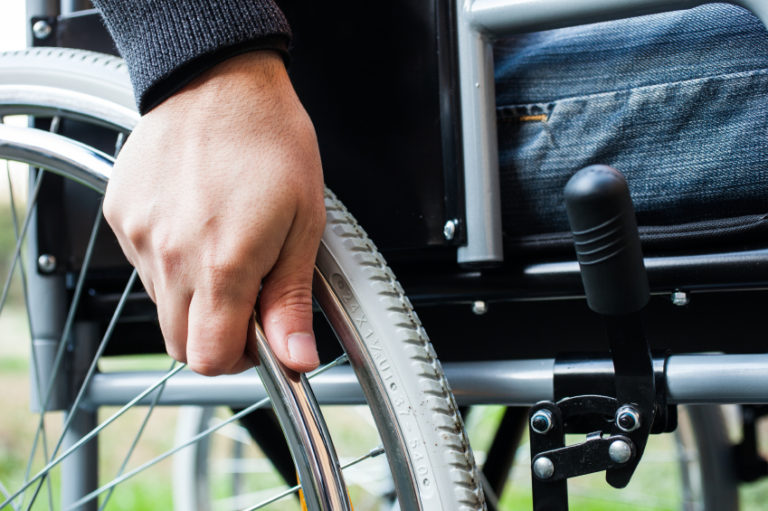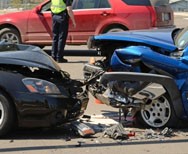How To Detect A Traumatic Head Injury
Do you think you or someone you know has a concussion? You came to the right place to learn how to detect a traumatic head injury, along with understanding the importance of early detection.
A traumatic head injury can happen when you least expect it. There are many reasons why these types of head injuries happen.
For example; a slip and fall, being involved in a car accident, playing sports or even attending a sporting event. The key with head injuries is that they can either be very noticeable or go unnoticed.
We all notice if someone has a gash on their head and they are bleeding profusely. However, we may not notice if they hit their head so hard that they have internal bleeding in the brain.
This is why it is so important for people to know the signs of a traumatic head injury. It’s also important to know what they should do if they notice these signs in themselves or someone else.
Signs of Traumatic Head Injury A.K.A. Concussion

There are several signs of a traumatic head injury that a person needs to watch out for.
These signs include the following:
– They are being extremely drowsy
– They are behaving in an unusual or erratic manner
– They have stiffness in their neck
– They complain of a headache
– The pupils are not equal sizes
– They have lost consciousness
– They are vomiting or complaining of nausea
– They have vision issues
– They have paralysis of the legs or arms
– They have slurred speech
– They appear daze
– They have delayed responses when asked something
– There is a ringing in the ears
– They may even not have any memory of how they injured their head, known as amnesia surrounding the event
– They have the sensitivity to light or noise
– They are Irritable
There are also other symptoms that are not as well known when talking about the signs of a concussion.
It is important that a person be aware of these as well:
– Seizures
– Difficulty recognizing people or familiar places
– Stumbling rather than walking straight
– Lack of interest in those things that they once loved
– They may complain that everything tastes or smells different, even though there have been no real changes to the food or the area around them.
The signs and symptoms of concussions or any other traumatic head injury should not go unnoticed. Leaving this person without medical care can lead to disastrous results.
What Causes A Concussion?

A concussion happens when your brain suddenly slides back and forth in the skull. Normally, the brain is cushioned by the cerebrospinal fluid that is inside the skull. If a person gets a hard knock directly to the head, it can cause the brain to shift rather than the fluid protecting it and holding it in place.
Who Is At Risk?

Anyone can get a concussion if they are in the wrong place at the wrong time. Those who are involved in auto accidents often are checked for concussions.
Car accidents are typically high impact accidents that can result in a concussion.
However, there are others who are at risk:
Young children are more susceptible than adults.
Older adults are more susceptible because as we age we tend to get weaker and this can increase the chances of falling down more.
Those who are playing a high-risk sport like football, soccer, boxing, hockey and other contact sports.
Those who are victims of physical abuse.
Anyone who could be involved in a vehicle collision while riding a bicycle or walking on the sidewalk.
Those who have had previous concussions are more likely to suffer one again in the future.
What you can take away from this is that anyone can suffer a concussion under the right circumstances. That is why it is important that people know the signs and symptoms of traumatic head injuries.
Get Medical Help

If you notice these signs in yourself or someone else, your first step is to get medical help! For those who have been involved in accidents, they are often tested for a concussion upon arriving at the hospital. However, remember it could take a few days for the signs to start showing.
Most medical doctors recommend that if the signs and symptoms are not severe, you should make an appointment with your regular doctor. However, if the person is losing consciousness, having seizures are extremely lethargic, get them to the emergency room at once.
Your Next Steps

Many people make several mistakes when it comes to a concussion. Remember, if you do suffer a concussion and this was due to an accident that was not your fault, you do have legal options. A concussion can have lasting effects on your life.
For example:
– You may also have lingering headaches
– You may be prohibited from being involved in any contact sports
– You could develop post-traumatic vertigo
These are issues that you may deal with for a few months after the concussion or even a few years! This is why you need to take a few more steps to ensure that you are protecting yourself or your loved one who has the concussion!
These steps are as follows:
– Keep a note of all the symptoms and the trips to the medical facility for treatment. This can help your attorney with written records of the medical issues that were suffered at the time.
– Be sure to note any issues even after the doctor has released you for home. You want to be able to prove that this head injury has had a lingering effect
– Always keep any bills, insurance information or the like related to this injury
Keep this information in a safe place in the event that you do have to get an attorney involved. If you have suffered a traumatic head injury, you are not alone. These types of injuries happen every day. If you do have a concussion, it is important to follow your doctor’s advice.
This advice often includes:
– Taking a few extra precautions to prevent more head injuries. Remember, once you have a concussion you are more likely to get a concussion later. This may mean wearing helmets while doing some things and being extra cautious.
– Do not return to your regular activities too soon, as this can increase the chances of having another concussion! You will need to be cleared by your doctor for driving, playing sports and the like.
A post shared by Conte Jaswal (@contelawyers) on
Have You Suffered A Concussion?
Remember, if you have suffered a concussion that was due to the result of someone else or their actions, be sure to contact a personal injury attorney.
You do not want to find yourself having to bear the results of someone else’s negligence for your entire life while the person responsible is not held accountable.
This is what a personal injury attorney can help you with! And remember, a traumatic head injury is no laughing matter, be sure to get medical help as soon as possible.
Contact Conte Jaswal




